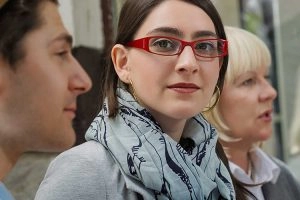Description
More than two years into the pandemic, 6 in 10 Americans whose jobs can be done remotely continue to work from home all or most of the time. If this trend persists, how is it likely to affect workers’ quality of life, the profitability of firms and the economic geography of cities and suburbs?
Urban economist Matthew Kahn argues that remote work presents especially valuable opportunities for flexibility and equity in the lives of women, minorities and young people, and even for those whose jobs do not allow them to work from home. Pew Researcher Kim Parker has the latest data on how Americans feel about working from home and about their employers.
The discussion is moderated by sociologist Kyla Thomas of the USC Dornsife Center for Economic and Social Research. Her recent research is focused on the cultural mechanisms through which social and economic inequalities are reproduced in institutions like the U.S. labor market.
Who Will Benefit
– Those hoping to understand how working remote can improve their health and work-life balance
– Remote workers looking to communicate telecommuting benefits to their employers
– Those seeking deeper insights into the future of remote work
About Our Featured Faculty
Matthew E. Kahn focuses his research on urban and environmental economics. He is a Provost Professor of Economics and Spatial Sciences at USC. He is also a research associate at the National Bureau of Economic Research and a research fellow at IZA. From July 2019 to July 2021, he was the Bloomberg Distinguished Professor of Economics and Business at Johns Hopkins University and the Director of JHU’s 21st Century Cities Initiative. He has taught at Columbia, the Fletcher School at Tufts University, UCLA, Harvard, and Stanford. In the summer of 2013, he was the Low Tuck Kwong Distinguished Visiting Professor at the National University of Singapore. He is the author of multiple books, including Going Remote: How the Flexible Work Economy Can Improve Our Lives and Our Cities.
Kyla Thomas is a sociologist at the USC Dornsife Center for Economic and Social Research. She holds a PhD in sociology from Princeton University and a BA in both sociology and communication studies from UCLA. Broadly, her research interests include the sociology of culture, social stratification, economic sociology, and experimental methods. Currently, her work focuses on the cultural mechanisms through which social and economic inequalities are reproduced in institutions like the U.S. labor market. She is also the director of LABarometer, a quarterly survey designed to track social and economic conditions in Los Angeles County with a focus on four key issues: livability, mobility, sustainability and affordability.



